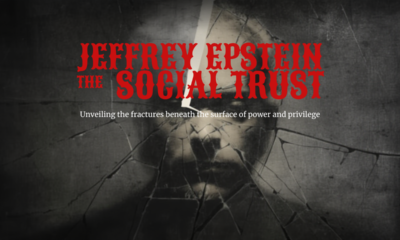Education
Education Reform: Think Outside the Box

Those involved in the tea party movement sing the song of limited government but continually seek to remedy of loss of liberties through pushing for more legislation. We cannot have limited government if We the People do not step up to the plate to figure out solutions to our problems independent of government intervention. This is especially true of education reform.
If parents believe that government-run schools are undesirable for their children to attend – for a variety of reasons – they need to find alternatives. Not only does the success of their children’s academic career depend on finding solutions to this problem but the future of America’s Constitutional Republic also depends on it. Abraham Lincoln once said that the philosophy in the classroom of one generation will be the philosophy of government in the next generation. Lincoln was right. Today we are seeing the philosophy of a liberal academic agenda playing itself out in government. If we are to survive, this must change.
Last week I stated that this would be a two-part series. Since then I have realized that I need a Part Three. Part Three will detail the practical steps I suggest to accomplishing one of the goals listed in this segment.
What can we do to change this?
As discussed before, school choice legislation is a possibility but it is fraught with problems that may result in the remedy creating a larger problem than originally existed. Right now we have choices available that bad legislation may impact badly. I strongly caution not going that route without counting the cost. The proposed legislation can be fixed but it must be fixed satisfactorily before being blindly accepted.
I believe and encourage those who are concerned about education to strongly consider establishing a private school. The thought may seem outlandish or outside of your field of expertise, but it is not. You may be thinking that you don’t have the qualifications to do such a thing. Again, you would be wrong. I am not speaking recklessly about this. I am speaking as someone with only a high school diploma that did what I’m suggesting you can do. The rationale is simple – I did; therefore, you can do it as well. Below I will list some factors that make this not only possible but very doable:
- IRS rules allow donations that are made to schools that are registered as non-profits to be tax deductible. This is a huge benefit for those choosing to establish a private school. Monies from people and businesses in the school’s district can be solicited and the donor would receive a tax deduction, as well as knowing that they were instrumental in helping their community. In a twist of irony, tax dollars would be going to private schools without begging for the “right” legislation.
- Church schools are easier to establish than most realize. Most churches only use their facilities at times when schools are not in operation. These buildings can and should be used to educate our children in the off hours. Finding and paying for a facility to house a school is most likely the largest obstacle one will encounter when trying to establish a private school. This option can literally bring the vision into reality. It is my understanding that churches in urban areas would be especially eager to help this come to fruition. Imagine the benefits of establishing a “good” school in an urban area with a failing system? Instead of these children becoming victims dependent on government assistance, they could be given the tools they need to overcome. The victims can be transformed into victors by providing for them the opportunity to thrive through education.
- Private schools can hire professionals in their field to teach and are not bound to hire state certified teachers. The choice is a matter of policy, which can be altered as the school develops. This option can be significant in reducing the cost of education. Retirees and professionals in their field can be hired on a part time basis. Block scheduling can accommodate part time teachers by requiring that they teach only on certain days and at certain times. A secondary school that is starting out needs only to hire the bare minimum of teachers – as little as three at the secondary level.
- Many private schools are more than willing to share their policies and handbooks, as well as By-laws. Such things need not be developed from scratch. Also, organizations, such as Association of Christian Schools International, provide a plan of action on the how to’s of planting a new school and are very willing to consult and come alongside of a movement that is being initiated. Opportunities also exist to share programs and venues with other schools. For instance, if one school has a good music program, a good sports program, or a good science program, they can share these programs with other schools if they so desire. And if the church is limited in space, they can partner with other churches with limited space and create a campus-like situation.
Other education reform alternatives
All that is really needed from the community, church, or parent is the vision and determination to see the project through – and that includes ignoring those that taunt and would have you believe that this is sheer insanity. You don’t have to be a professional educator to start this endeavor. As I said previously, in my case I only had a high school diploma and a business school certification but I did have determination and the ability to ignore the naysayers. If I could do this, so can you!
- Other options exist, such as homeschooling co-ops. Since regulations vary from state to state regarding homeschooling, your state’s laws need to be thoroughly researched before embarking on this option. Some parents are able to home school entirely on their own. Others are able to home school to an extent but feel intimidated by certain subjects. Co-ops allow parents to pool their resources and talents to provide well-rounded curricula for their children. Co-ops can vary: some meet daily, others meet weekly and hire professionals to teach subjects they are uncomfortable teaching.
As a former homeschooling mom, I can tell you that there are many rewards for homeschooling that go beyond the realm of academics. Aside from being privy to the selection of your child’s curriculum and tailoring it to their specific needs, you will experience a bonding process that is not anticipated. And if you have more than one child you are homeschooling, usually the siblings bond among themselves in a way that wouldn’t happen had they been attending government-run schools.
Another significant benefit is that you are able to tailor the curriculum to the way the child learns and go at the child’s pace. For instance, in my situation I learned that my son gravitated to biographies. At that point I made an effort to teach as much as I could to him through the use of biographies. The success was nearly unimaginable as he went from a first grade reading level to a seventh grade reading level in one year!
And you can purchase fully developed curricula or put together your own. The resources are endless. Now-a-days there are also internet classes available, which run the gamut of full-time to subject-based, and many states have homeschooling fairs where parents can touch, feel and assess in person the curriculum they are considering.
One last point on homeschooling, in New Jersey homeschooling students score on average 41 points higher on their SATs than government-run school students.
Possible benefits of finding alternatives to government-run education
I believe the suggestions made above would – to a great extent – solve our education crisis. There is another aspect that makes this desirable – the unanticipated benefits to the creation of non-public schools – especially if these schools are created en masse.
Imagine an exodus of students from the roles of government-run schools, as these suggestions could create. The loss of students would result in certain inevitable consequences for government-run schools and taxpayers. Below is my optimistic but realistic scenario:
Hypothetically, if any school experiences an exodus of a significant number of students, that school district would be forced to:
- improve the academics of the school to make it more attractive to the parents and survive,
- reduce the operating expenses of the school, hence the community should see a reduction in taxes, which would:
- free up more monies for parents to spend on private schools.
One downside would be that the long-held stronghold of progressive indoctrination would be threatened, and we could expect that element of society to fight back with a ferocity we could never fully anticipate.
In Part Three of this series I will discuss my suggestions for bringing any of the options above into reality.
If you believe that our children should be the best educated in the world and also believe that our country is as much on the line as the future of our children, then seriously consider these options. I, for one, am not willing to submit my children or yours to the chains of ignorance. And I strongly believe that we can win this battle for the hearts and minds of our children, but we must do it together – and we must remain resolute and impervious to the taunts of the naysayers. Our kids are worth it, and so is America!
[subscribe2]
RoseAnn Salanitri is a published author and Acquisition Editor for the New Jersey Family Policy Council. She is a community activist who has founded the Sussex County Tea Party in her home state and launched a recall movement against Senator Robert Menendez. RoseAnn is also the founder of Veritas Christian Academy, as well as co-founder of Creation Science Alive, and a national creation science speaker.
-

 Civilization3 days ago
Civilization3 days agoTariffs, the Supreme Court, and the Andrew Jackson Gambit
-

 Civilization3 days ago
Civilization3 days agoWhy Europe’s Institutional Status Quo is Now a Security Risk
-

 Civilization1 day ago
Civilization1 day agoMaduro’s Capture: U.S. Foreign Policy in Latin America
-

 Civilization4 days ago
Civilization4 days agoEpstein and the destruction of trust
-

 Civilization4 days ago
Civilization4 days agoDeporting Censorship: US Targets UK Government Ally Over Free Speech
-

 Executive4 days ago
Executive4 days agoWaste of the Day: Wire Fraud, Conflicts of Interest in Connecticut
-

 Civilization2 days ago
Civilization2 days agoTrump Lashes Out at Supreme Court as Under ‘Foreign Influence’
-

 Education5 days ago
Education5 days agoWaste of the Day: Throwback Thursday – The Story of Robosquirrel






Michael Alan Kline Sr liked this on Facebook.
Olivia Bryant liked this on Facebook.